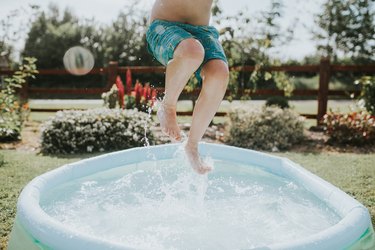It may be the most fun part of your home, but your pool area is also one of the most dangerous. Keeping everyone safe by your pool is your responsibility, so pool owners must be vigilant about creating and enforcing safety procedures. Knowing that you've put plenty of protection in place allows you to cannonball with a clear conscience.
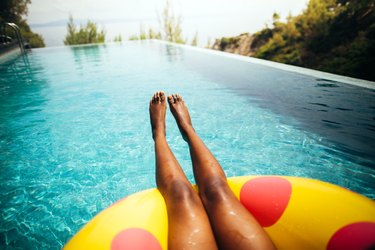
Video of the Day
1. Install Alarms on Gates
All pools should be fenced off, but installing a fence won't necessarily keep kids or pets from accessing the water when you're not looking. Add another layer of protection by attaching an alarm to every gate. If someone does manage to get through the fence, the alarm may give you enough time to get to the pool before the would-be swimmer gets wet.
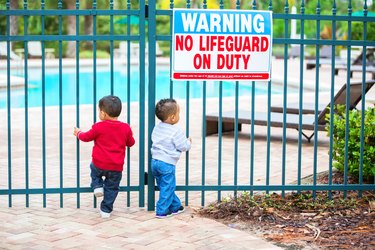
2. Install Alarms on the Water
When it comes to pool safety, you can never be too careful, so don't stop at installing alarms for the gate. Consider using a pool alarm too, which either sits on the side of the pool or uses a sensor that floats in the water itself. The alarm sounds whenever the surface is disrupted, so you'll be alerted whenever a person or animal enters the water. There are even smart models that send notifications to your phone whenever motion is detected.
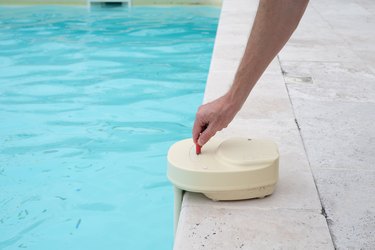
3. Place Rescue Equipment in Sight
A life ring won't do much good in an emergency if no one knows where it is. Make sure your pool area has at least one piece of equipment that could be used to pull someone from the water if necessary. Hang it from the fence or in some other obvious location near the water.
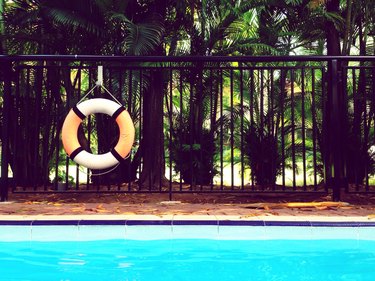
4. Consider Nonslip Mats
It only takes one wrong step on slippery tile for a terrible accident to occur in your backyard. Laying down nonslip mats near the steps and ladder of the pool will create a safer surface on which to walk. Test the slipperiness of your ladder rungs too. If your feet slip as you climb up or down the ladder, it's time to replace it.
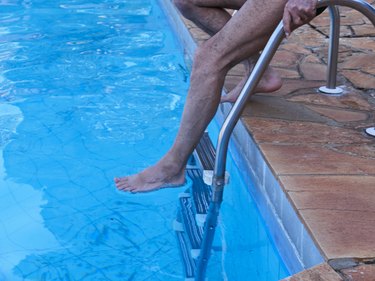
5. Store Chemicals Out of Reach
Using chlorine and other chemicals is part of keeping your pool water safe and swimmable, but they can be deadly if consumed by a child or animal. Never store any pool chemicals in the pool area itself unless they're locked in a shed or other inaccessible storage unit. Stash chemicals in a cool, well-ventilated place where kids can't get into them.
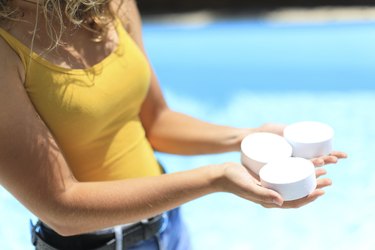
6. Clear Away Toys
The last thing a pool owner wants is a young child wandering into the area without supervision. Leaving colorful pool toys scattered around the water's edge may make the space look even more enticing to little ones, drawing them closer to investigate and play. Put away pool toys at the end of each swim session just to be safe.
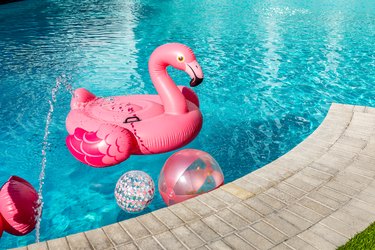
7. Use a Pool Ramp for Dogs
Your pool area isn't really safe unless it's safe for both people and the pets they love. Dog owners can keep their pups safe around water by buying small pool ramps designed for animals. If a nonswimming dog falls or jumps into the water, using the ramp will help him escape easily.
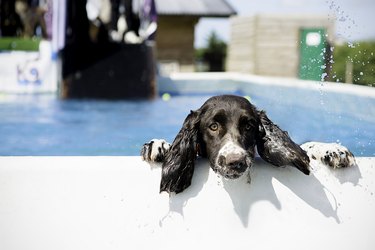
8. Hang a Rules Sign
It works for the public pool, so why shouldn't you get to lay down the law in your own backyard? Your pool, your rules. Buy a standard pool rules sign to display or make your own with rules customized to your preferences.
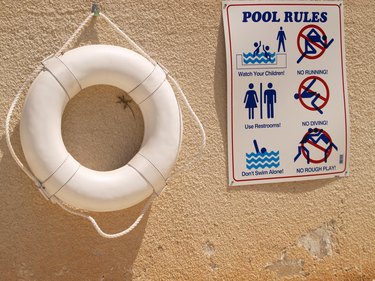
9. Move Furniture Away From Water
Moving your chaise lounge closer to the pool may help you escape the shade and soak up more rays … and create a tripping hazard. Leave a clear pathway of at least 3 feet around the pool at all times. Keep furniture at least this far from the water's edge to minimize the chance that one of your guests will trip on a chair leg and end up in the pool.
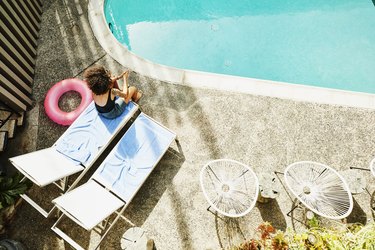
10. Keep Inflatable Pools Inaccessible
A child can drown in just a few inches of water, so any kind of pool poses a potential danger. Empty small, inflatable pools as soon as you're finished using them. With larger, portable pools, tightly cover the pool at the end of every swim session. If there's a ladder, move it away from the pool so it's not easy to climb into the water.
